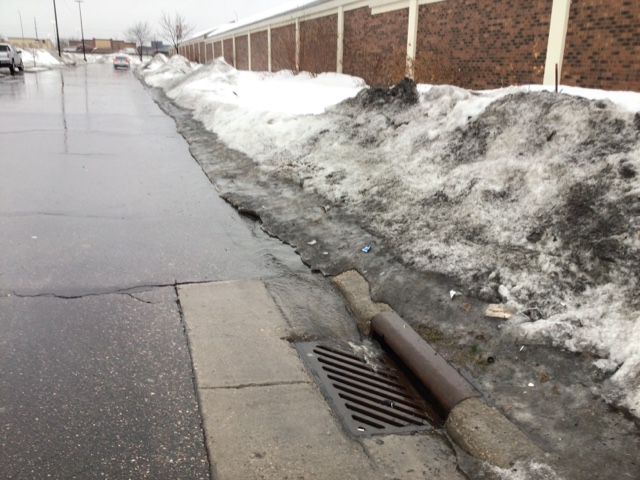Spring Cleaning: The Importance of Stormwater Management When the Winter Thaw Starts
By Carlie Utesch, Marketing Coordinator
Spring is almost here, although we did have record snowfall in parts of the country last week. This time of year brings warmer temperatures, meaning, it is time for property owners think about snowmelt and the impact on your stormwater systems. Stormwater systems can potentially face extensive damages if your property is unprepared for an influx of runoff due to snowmelt.
How to Prevent Snowmelt Damaging Stormwater Systems
Best management practices while preparing for snowmelt always include understanding the property’s infrastructure and operations manual. Property owners should know where porous or permeable surfaces are located and avoid using salt or sand to melt snow in these areas. When plowing snow, keep in mind and avoid dumping in locations of catch basins, bio islands, or rain gardens. Snow piled in front or on top of catch basins will obstruct the flow of runoff, causing flooding. Bio islands and rain gardens are home to native plants, which are not salt tolerant. Once the snowmelt begins to seep into the ground, it will carry all the pollutants like salt, into these susceptible habitats.
Whether salt or sand was used for deicing, be aware of the negative effects of each. Salt dissolves along with snowmelt but is hard on plants. As temperatures warm up, monitor plant growth, as the area may need new vegetation if previous growth does not come back. Excessive salting may not only kill existing plants, but permeate the soil leaving highly chlorinated, hostile ground where future vegetation will not grow.
After deicing with sand, the sediment is carried along with snowmelt into the stormwater system. This can lead to a buildup of sediment inside the stormwater system and lead to flooding at the catch basin. Sand can also destroy permeable surfaces as it fills the holes in pavers that were designed to let water percolate. Deicing materials should never be stored loosely in parking lots, as runoff will carry the material at highly concentrated levels into the watershed. Always contain and cover piles of salt and sand with barriers to avoid contamination downstream. Polluted runoff can be cause for fines and a notice of violation by local municipalities.
Flooding around retention ponds is common when snowmelt thaws, as emergency overflows can be full of debris, blocking the optimal path for runoff. In areas with extreme snowfall, inspect retention ponds to ensure the emergency overflow is clear and the pond has additional capacity to prepare for snowmelt.
How to Spot a Problem Early
Property owners should visually inspect around parking lots and catch basins for sinkholes or flooding, as these signs are indicative of larger problems under the surface. Flooding can be due to snow, trash, or sediment buildup congesting catch basins at ground level or inside the pipe underground.
Sinkholes around catch basins are common as repeated freezing and thawing causes asphalt to shrink and expand. During this process, water slowly leaks into openings in catch basins and later freezes, expanding any existing small cracks, creating sinkholes as the asphalt deteriorates. Once a sinkhole is present, it needs to be repaired quickly as the ground will continue to decay. While the issue may be surface level, it is likely more deeply rooted and should be properly inspected to fix the problem at the origin.
In parking lots, the ground between the asphalt on the surface and shallow underground pipes will often freeze. This frozen ground can cause heaving as previously flat parking lots begin to shift and sink due to soil compaction. Monitor any new or growing depressions on the surface of parking lots as these will divert drainage and lead to pooling, which will degrade existing infrastructure. This should be evaluated before irreparable damage occurs.
Partnering with a trusted stormwater provider like AQUALIS ensures your stormwater systems are prepared for the changing seasons, snowmelt, and any other challenge your site might face. Contact AQUALIS and schedule a FREE consultation with your local representative to learn more.
